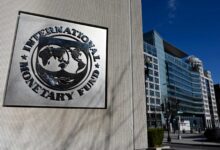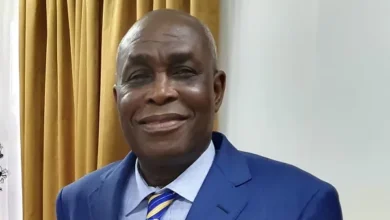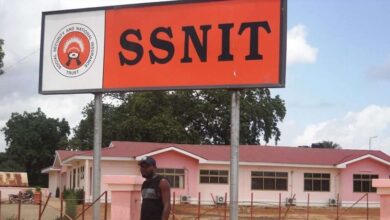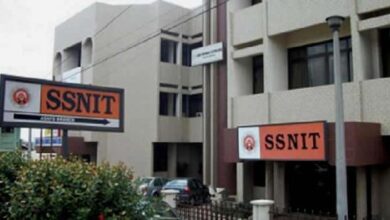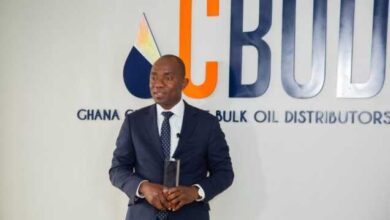Interim agreement with int’l bondholders must be tweaked to meet IMF debt sustainability targets – Finance Minister
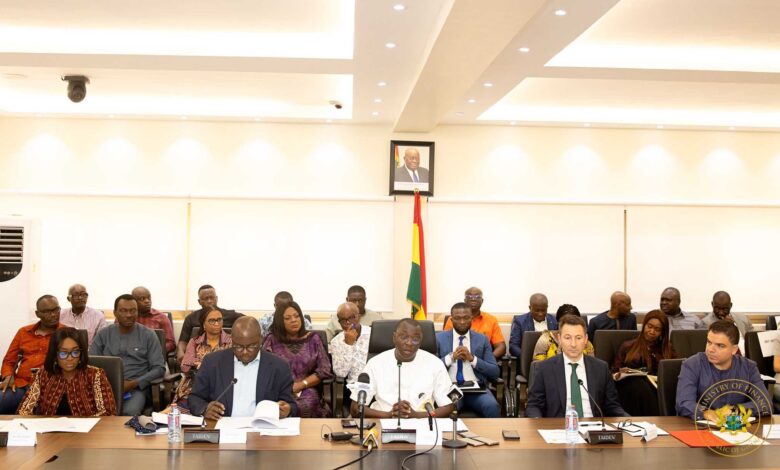
The Finance Minister Dr Mohammed Amin Asam has said that the interim agreement that Ghana and its international Bondholders reached must be tweaked to meet the International Monetary Fund (IMF) debt sustainability targets.
To that end,m he said the government will continue its negotiations until they reach a deal that is consistent with IMF debt sustainability targets.
“Update on External Debt Operations: Ghana and Bondholders reached an interim deal, which must still be tweaked to meet IMF debt sustainability targets. We will therefore regroup to continue negotiations until we reach a deal that is consistent with IMF debt sustainability targets,” he wrote on X.

The Finance Minister had announced earlier on Monday, April 15 that Ghana was unable to secure a workable debt deal with two bondholder groups in its push to restructure $13 billion of international bonds.
Reuters reported that formal talks were on hold for now after the International Monetary Fund indicated that the deal would not fit its debt sustainability parameters, the government said in a statement.
The IMF Mission Cheif for Ghana, Mr. Stéphane Roudet, had said that they were awaiting Ghana to reach an agreement with external creditors to enable the Board to review the staff-level agreement that has been reached as part of the process to release the third tranche.
The IMF staff and the Ghanaian authorities had reached a staff-level agreement on the second review of Ghana’s economic program under the Extended Credit Facility arrangement.
This staff-level agreement is subject to IMF Management approval and Executive Board consideration once the necessary financing assurances have been received.
Mr Roudet said at a joint Press IMF, Ministry of Finance, Bank of Ghana press conference in Accra on Saturday, April 13 that an agreement between the Ghanaian authorities and their official creditors on an MoU for a debt treatment in line with programme parameters, would provide the needed financing assurances.
Upon completion of the Executive Board review, he said, Ghana would have access to US$ 360 million, bringing the total IMF financial support disbursed under the arrangement since May 2023 to US$ 1,560 million.
“Performance under the IMF-supported program has been generally strong, with most quantitative targets met. Good progress has also been made on the key structural reform milestones. The authorities’ policies and reforms to restore macroeconomic stability and debt sustainability while laying the foundations for stronger and more inclusive growth are already generating positive results.
“Economic activity in 2023 was more robust than initially envisaged, and growth projections for 2024 will be revised upward. Monetary policy has remained appropriately tight, allowing for inflation to decline rapidly.
“On the fiscal front, consistent with the authorities’ commitments under the IMF-supported program, the fiscal primary balance on a commitment basis improved by over 4 percentage points of GDP in 2023 and is on track to achieve a fiscal primary surplus of ½ percent of GDP in 2024. Spending has remained within budget limits, while the authorities have significantly expanded social protection programs to help mitigate the impact of the crisis on the most vulnerable. Ghana has met its non-oil revenue mobilization target, while making progress in implementing ambitious structural fiscal reforms to bolster domestic revenues, strengthen public financial and debt management, and enhance transparency,” a statement issued by the Fund after the press conference said.
Below is the full statement…
An International Monetary Fund (IMF) staff team, led by Mr. Stéphane Roudet, Mission Chief for Ghana, held meetings in Accra during April 2-12, 2024, to discuss progress on reforms and the authorities’ policy priorities in the context of the second review of Ghana’s three-year program under the Extended Credit Facility. The arrangement was approved by the IMF Executive Board for a total amount of SDR 2.242 billion (US$ 3 billion) on May 17, 2023.
At the end of the mission, Mr. Roudet issued the following statement:
“I am pleased to announce that IMF staff and the Ghanaian authorities have reached a staff-level agreement on the second review of Ghana’s economic program under the Extended Credit Facility arrangement. This staff-level agreement is subject to IMF Management approval and Executive Board consideration once the necessary financing assurances have been received. An agreement between the Ghanaian authorities and their official creditors on an MoU for a debt treatment in line with program parameters, would provide the needed financing assurances. Upon completion of the Executive Board review, Ghana would have access to SDR 269.1 million (about US$ 360 million), bringing the total IMF financial support disbursed under the arrangement since May 2023 to SDR 1,171.9 million (about US$ 1,560 million).
“Performance under the IMF-supported program has been generally strong, with most quantitative targets met. Good progress has also been made on the key structural reform milestones. The authorities’ policies and reforms to restore macroeconomic stability and debt sustainability while laying the foundations for stronger and more inclusive growth are already generating positive results.
“Economic activity in 2023 was more robust than initially envisaged, and growth projections for 2024 will be revised upward. Monetary policy has remained appropriately tight, allowing for inflation to decline rapidly.
“On the fiscal front, consistent with the authorities’ commitments under the IMF-supported program, the fiscal primary balance on a commitment basis improved by over 4 percentage points of GDP in 2023 and is on track to achieve a fiscal primary surplus of ½ percent of GDP in 2024. Spending has remained within budget limits, while the authorities have significantly expanded social protection programs to help mitigate the impact of the crisis on the most vulnerable. Ghana has met its non-oil revenue mobilization target, while making progress in implementing ambitious structural fiscal reforms to bolster domestic revenues, strengthen public financial and debt management, and enhance transparency.
“The external sector has improved significantly, with international reserve accumulation ahead of program objectives. Financial stability has been preserved, with banks posting solid profits in 2023.
“Given Ghana’s strong progress under the IMF-supported program, the next key step for the country is to reach an agreement with its official bilateral creditors on an MoU consistent with the terms agreed in January 2024. We look forward to the authorities’ continued efforts to reach an agreement with all creditors in line with program parameters.”
Source link



